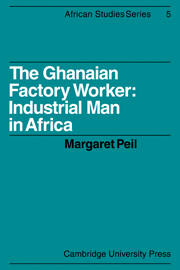Summary
Migrants face many problems after their arrival in town. They may stay with relatives for a time, but sooner or later they must find a room of their own. This may be located near their relatives, but the shortage of low-rent accommodation means that they may have to move to some other part of the city. As time goes on, they will also find new friends, though the breadth of this network will vary with their background and attitude toward city life. Most of them will marry, if they have not done so already, and encounter the difficulties of bringing up children in town. Most will plan for an eventual return to their hometowns. Like or dislike for city living may have little effect on how long a migrant stays, since the economic reason for being in town remains constant. Most migrants have mixed feelings about the city.
REACTIONS TO CITY LIFE
Workers were asked what they liked best about living in the city and what they liked least. These were open questions; workers could name as many reasons as they chose, but most gave only one answer to each question (see table 6.1). Those living in Kumasi were most favourable in the sense that nearly half said they liked everything or mentioned specific things they liked but could not specify anything they disliked about living in Kumasi.
- Type
- Chapter
- Information
- The Ghanaian Factory WorkerIndustrial Man in Africa, pp. 150 - 189Publisher: Cambridge University PressPrint publication year: 1972

